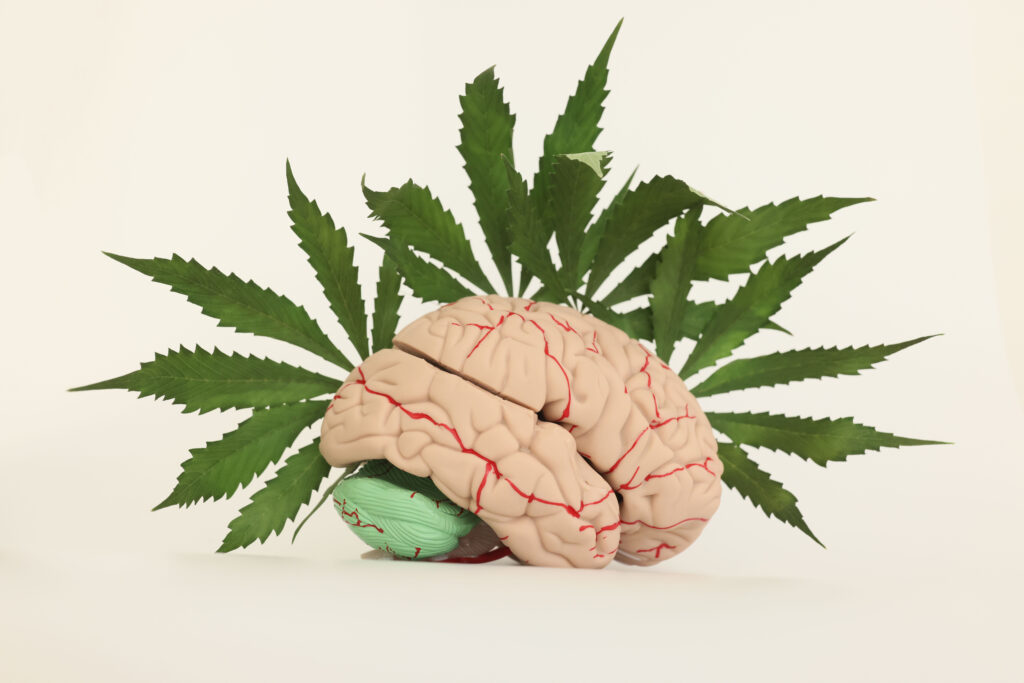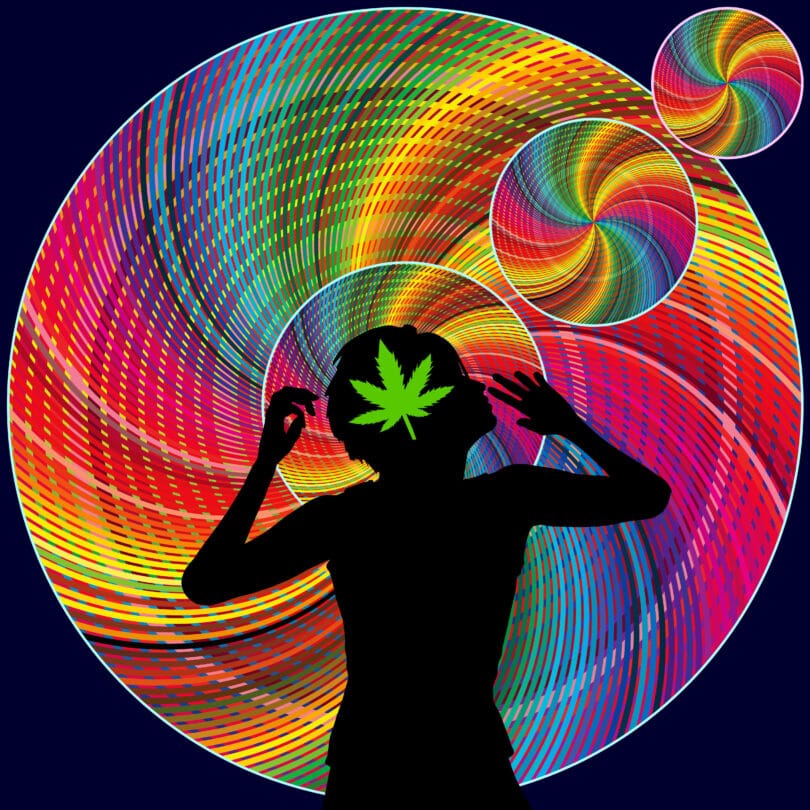One of the going lines for those opposing cannabis, is that it increases incidences of psychosis, like schizophrenia. Now, a new study greatly contradicts this, to the point of saying nearly the opposite. Why do such contradictory results exist, and should we be worried that cannabis increases the risk of psychosis?
This article is the express opinion of the writer.
New study on cannabis and psychosis
Psychosis definition according to the National Institute of Mental Health: “Psychosis refers to a collection of symptoms that affect the mind, where there has been some loss of contact with reality. During an episode of psychosis, a person’s thoughts and perceptions are disrupted and they may have difficulty recognizing what is real and what is not.” It is not more specific than this.
The study is called Early Detection and Intervention for the Prevention of Psychosis Program (EDIPPP), and was conducted on multiple sites with clinical trials. Eleven different universities took part in it. The goal was originally to show that using cannabis is dangerous for people with a higher risk of psychosis.
For the study 210 ‘clinically high risk’ patients who smoke cannabis, were followed for two years. This was not an adults only study, and the average age of participants was 16 years old. 81% were enrolled in school when the study started. 61% of subjects were white, and 42% of the test population was female. Researchers tracked medication taking, brain function, and other observed behaviors to gather data. This was on on-site study.

According to the study data, not only was cannabis not related to an increase in psychotic onset; but the data indicates it didn’t affect general brain function negatively, or produce clinical symptoms. Quite the opposite, actually. Those who used cannabis were found to have higher functioning brains, with a greater capacity through time, for sociability. According to the team, “CHR youth who continuously used cannabis had higher neurocognition and social functioning over time, and decreased medication usage, relative to non-users..”
This study goes in contrast to many others, like this one out of Denmark; which leaves us with the notion that from 1995-2010, problematic marijuana use with schizophrenia increased from 2% to 4%. This study only used medical files, however, and spoke to no participants. Much like many investigations of this nature, it means study investigators had 0% control over information collection, and all information was collected for other purposes.
The new study doesn’t simply assess previously collected information with a hope of drawing some connection to make headlines. It’s a developed study that used participants who signed releases to be in it. The Denmark study, in comparison, suffers from a lack of contact with participants, while also seeking to measure a specific condition, which isn’t technically measurable. Perhaps the Denmark study, and others of its kind, are some of the better examples of how research and headlines are used to sway our opinions, even when based on nothing.
Why this is silly
We don’t question whether alcohol causes health damage, or whether opioids do. We’re all pretty okay with the line that they do, because we see it in real life. Especially with alcohol, which much like cannabis, has been used throughout recorded history, in some capacity. We know it causes severe issues from all this time, yet this same information can’t be said distinctively for cannabis. It’s questioned, and argued over, yet after all these years, there’s no obvious answer. Or, at least, there’s no obvious answer that it causes damage.
Natural medicine traditions have reported on the properties of different plants for thousands of years. And to be clear, they often speak of cannabis having somewhat psychotic effects. But its never spoken about as a lasting condition; and we’re all aware that when on a drug, we are supposed to experience something. Yet, somehow, despite it being the most widely used drug outside of alcohol, and with thousands of years of accumulated experience showing no lasting damage…
Can you see where I’m going with this? We’ve had thousands of years with weed collectively, and somehow no one was categorically worried about lasting damage in other cultures. Yet today, all of a sudden, it causes psychosis? Forget that the government regulates synthetic opioids that take out close to 100,000 people yearly in the US alone. It’s obviously the psychosis of cannabis – which no one ever sees beyond someone currently high – as the thing to worry about.

If weed were really a problem in this way, it would be reflected in all those ancient texts as possibly causing some form of long-term craziness. It would be seen regularly in society, considering how prevalent weed use is. Now think to yourself if you know even one person who went crazy because of smoking weed.
Beyond these points of logic, there’s the idea that the research world is an incredibly competitive place, wherein some must continue to publish findings to keep their positions. That’s a lot of pressure. Maybe enough to encourage some to put out sub-par efforts just to keep up. To give an idea of just how silly the world of research is getting, check out this article recently published in the Guardian, which attacks the topic of research retractions.
In 2022, for example, a massive 5,500 retractions had to be made for published scientific research. There is so much research published yearly, that this accounted for only one in 1,000. However, back in the year 2000, there were only 40 retractions, for comparison. Its best to remember that these are the ones that got challenged in some way; plenty of research that desperately needs to get retracted, doesn’t get enough exposure or heat for that to happen. Meaning those results stand. Some estimate that at least 100,000 studies should get retracted yearly, or more.
The issue with measuring psychosis
Psychotic issues like schizophrenia, are psychotic issues because a doctor defines them that way. There is no medical definition for any of these conditions, regardless of how many the DSM talks about, or how much you don’t like that sentence. This is not opinion. Not a single one has a definable and testable ability, and this is understood in the medical world, even if its flubbed a bit for consumers. So if the right person says you have one of these disorders, then voila, you do. If they don’t, then its just your friends speculating you’re crazy, according to today’s psychiatric process.
We’ve all seen some crazy people in life. There are definitely people with a screw loose, for whatever reason its like that. Maybe they were born with issues, maybe they got hit in the head, or were highly abused, or exposed to chemicals. Regardless of why a person ends up as the ‘crazy person,’ we know there is some line somewhere, and that past a point, we can see it. It’s not about one specific behavior either, but often a pattern of behaviors, which is indeed what the therapists look for.
When it comes to diagnosis, different doctors often give different ones for the same person. It happens all the time; and the only thing the doctors have in common is some kind of degree. Now consider how often doctors disagree and argue over different topics. The whole reason we develop tests when possible, is to give a clarified answer; so the right treatment measure is taken, and opinion is taken out.

If you have a broken arm, it comes up in an X-ray. If you have diabetes, it shows in your insulin levels. If you have a tumor, that can be biopsied to understand the cancer better. A virus can be detected, as can bacterial and fungal infections, as well as a host of other medical issues. These are all done through medical diagnoses, which define something that can be measured. No psychiatric issue comes with this kind of test, which means 100% of diagnoses are personal opinion. This is not debatable. Those personal opinions might (or might not) be based in education, but they are still personal.
Beyond what this means to shoving psych meds down people’s throats, it comes with another negative implication. If we can’t really measure these things in a definable way, how can any aggregated research mean anything? Since there is no definable test, and the doctor is such an important figure in each diagnosis; we’d have to know each doctor, to understand what they were responding to in each case. Any aggregated research is just a piling up of opinions, for which we have no idea what spawned them in the doctor’s mind.
Conclusion
While I hope this recent study works to get some reality back into a horribly demented research world; I have doubts. I expect as different forces fight to keep things illegal, we’ll hear much more in the future about this cannabis psychosis that no one actually sees.
Welcome everyone! Cool that you’re here! We appreciate you making your way to Cannadelics.com; where we report on the goings-on in the cannabis and psychedelics spaces. Come around regularly to get all the updates; and check out the Cannadelics Weekly Newsletter. It’s got some great product promos, along with the news.










